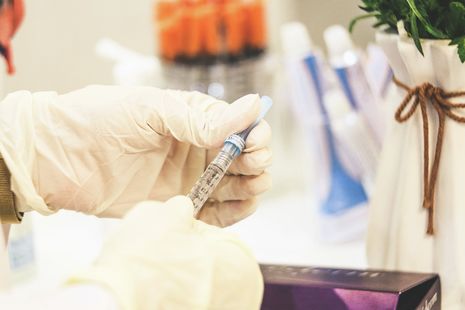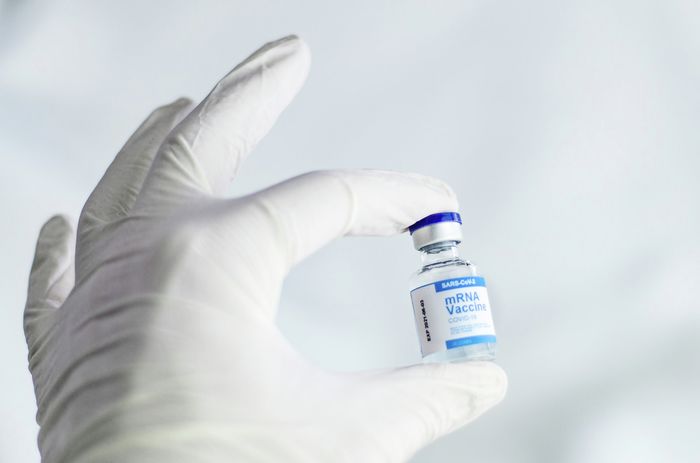The problem of patents
Rory Cockshaw explains the recent controversy on vaccine patents and examines currently proposed alternatives

Ambassador Katherine Tai, the United States Trade Representative, made a statement on the 5th of May declaring that the US would support waiving patent rights on COVID-19 vaccines. She said that while the Biden Administration “believes strongly in intellectual property protections”, they would nevertheless back India and South Africa’s campaign for temporarily waiving vaccine patents “in service of ending this pandemic.”
The move seems like an ethical no-brainer on the face of it, yet has been met with scorn from many developed nations. A spokesperson for the German government said they would not be backing the waiver, as “the protection of intellectual property is a source of innovation and must remain so.”
Much of the debate on patenting, particularly of novel medicines, revolves around two central arguments. On the one hand, they are seen as central to encouraging innovation; on the other, they provide “Big Pharma” companies with monopolies on the market.
Without patents, companies can spend billions of dollars and an average of 12 years (with an exceptionally high failure rate to boot) developing a new drug only for their competitors to reverse-engineer a cheaper knock-off. This severely disincentivises risky research and outside investment. For instance, research suggests that if India (a key proponent of the vaccine patent waiver) were to strengthen its intellectual property laws, it would boost foreign investment in its pharmaceutical industry by 33-83%.
Companies with patent-enforced monopolies often engage in price gouging, or raising the price of drugs for no reason other than greed, forcing patients to go along with price hikes on (sometimes literal) pain of death.
“Pharmaceuticals are of such importance to so many that it is perhaps ethically problematic to have any restriction on their use”
Recent pharmaceutical history is full of examples of this. In 2015, “Pharma Bro” Martin Shkreli bought and skyrocketed the price of Daraprim (which treats toxoplasmosis) by 5500%, or from $13.50 to $750, quite literally overnight. Likewise, Emflaza was bought by Marathon Pharmaceuticals and the price raised 6000% in 2017, from $1000-2000 per annum to $89,000.
Price gouging isn’t even the only abuse to which patent law is susceptible. Companies often evergreen their products, illicitly extending their monopoly with successive almost-identical patents. One of the most famous evergreening cases was the drug giant Novartis’ attempts to (re-)patent an only-minorly-improved version of Gleevec, which was controversially shot down in the landmark court case Novartis v. Union of India & Ors.
There has been much work done on alternatives to a patent system, especially for life-saving biomedicines. A prize-based system (such as the 1714 Board of Longitude) could encourage innovation while disallowing monopolies. Bernie Sanders and Barack Obama have been long-time advocates of prize-based innovation, following the policy expert Joseph Stiglitz, though others are critical.
A prize-based system requires high upfront taxpayer costs, the benefits of which would often flow abroad. As has often been pointed out, scientific research is serendipitous and you cannot easily define prizes preemptively. A benefit of patenting is that it is reactive; prizes have to be directed.
One of the main motivations for an alternative system to patenting is the simple fact that patents are simply not appropriate for all forms of innovation. In 1948, the US Supreme Court forbade patents of combinations of bacterial strains, stating that: “They are manifestations of laws of nature, free to all men and reserved exclusively to none. He who discovers a hitherto unknown phenomenon of nature has no claim to a monopoly of it which the law recognizes.”
This has prevented, or made very difficult, the patenting of so-called “biologics” – drugs which are synthesised at least partially within living cells, such as gut bacteria. The biopharmaceutical industry has nevertheless succeeded without patents, operating on trade secrecy and FDA-administered exclusivity rights instead.
There’s a moral imperative here, too. Pharmaceuticals are of such importance to so many that it is perhaps ethically problematic to have any restriction on their use, especially for a financial incentive. The “open science” model is a response to this, exemplified by the WHO’s FluNet, which makes available influenza data free for virologists around the world.
The WHO has set up a similar forum for sharing COVID-19 developments, technologies, and intellectual property called C-TAP (COVID-19 Technology Access Pool). C-TAP has not been used since May 2020, and no vaccine technology has been shared through it. Tedros Ghebreyesus, the Director General of the WHO, called C-TAP a “highly promising, but under-utilised, tool”.
Let’s return, then, to the news of Katherine Tai’s announcement and the patenting of COVID vaccines. Is this another case of patents hindering development? Should we be adopting an alternative approach, like endorsing and utilising C-TAP, or perhaps awarding prizes to organisations who come up with newer, better, cheaper vaccines?
My own view is that the waiver is not the answer – not in isolation, anyway. But the limiting factor is not that vaccines are patented, but that many countries simply don’t have the resources and facilities to mass-produce them safely and effectively. Our moral imperative to help end the spread of COVID in countries like India is urgent and undeniable – but patenting is not the real barrier. Equipment is. As one French diplomat commented, “lifting the IP certificates is well and good, but without transferring technology, it’s like having the recipe for a meal but not having a pan, a saucer, a knife.”
 Comment / Plastic pubs: the problem with Cambridge alehouses 5 January 2026
Comment / Plastic pubs: the problem with Cambridge alehouses 5 January 2026 News / Cambridge businesses concerned infrastructure delays will hurt growth5 January 2026
News / Cambridge businesses concerned infrastructure delays will hurt growth5 January 2026 News / New movement ‘Cambridge is Chopped’ launched to fight against hate crime7 January 2026
News / New movement ‘Cambridge is Chopped’ launched to fight against hate crime7 January 2026 News / Uni-linked firms rank among Cambridgeshire’s largest7 January 2026
News / Uni-linked firms rank among Cambridgeshire’s largest7 January 2026 News / AstraZeneca sues for £32 million over faulty construction at Cambridge Campus31 December 2025
News / AstraZeneca sues for £32 million over faulty construction at Cambridge Campus31 December 2025









